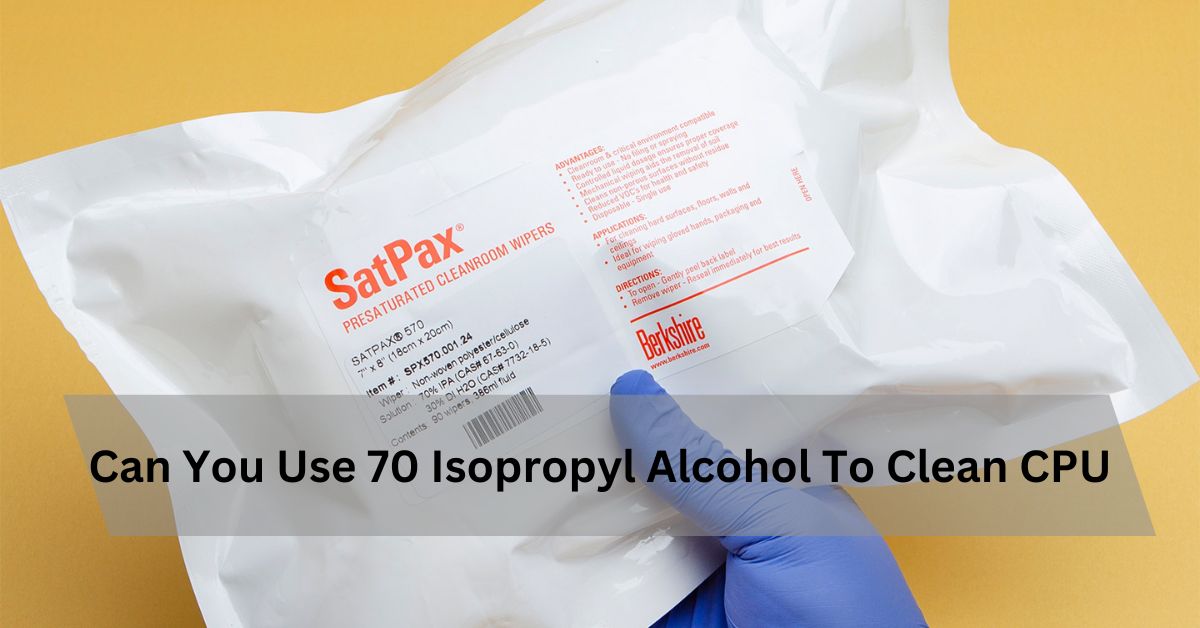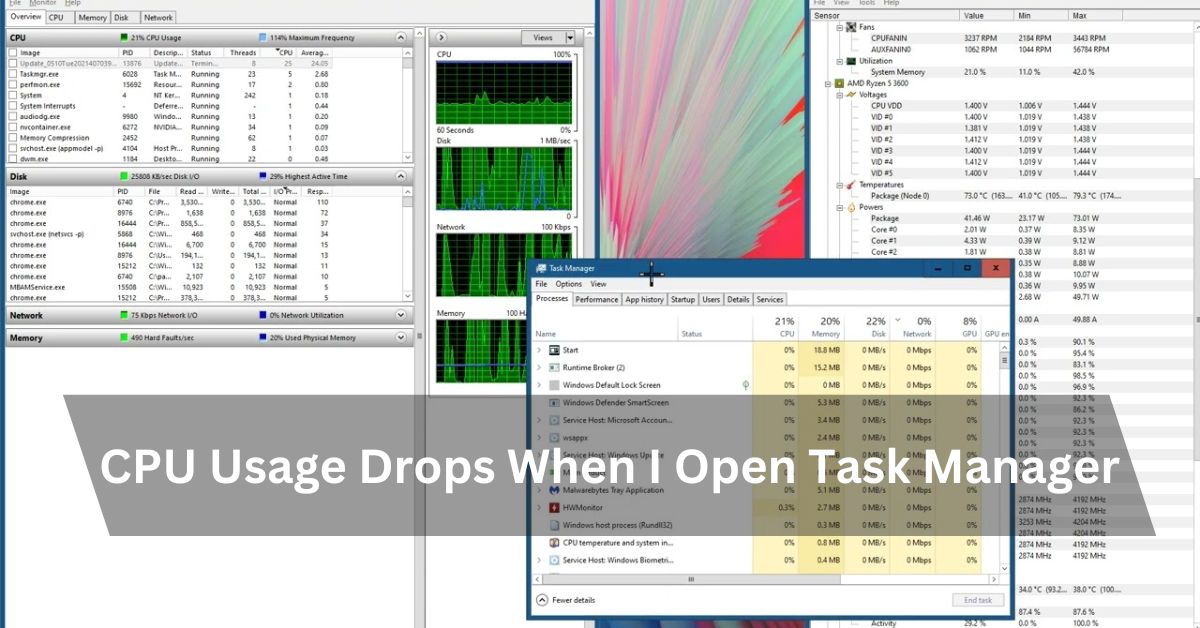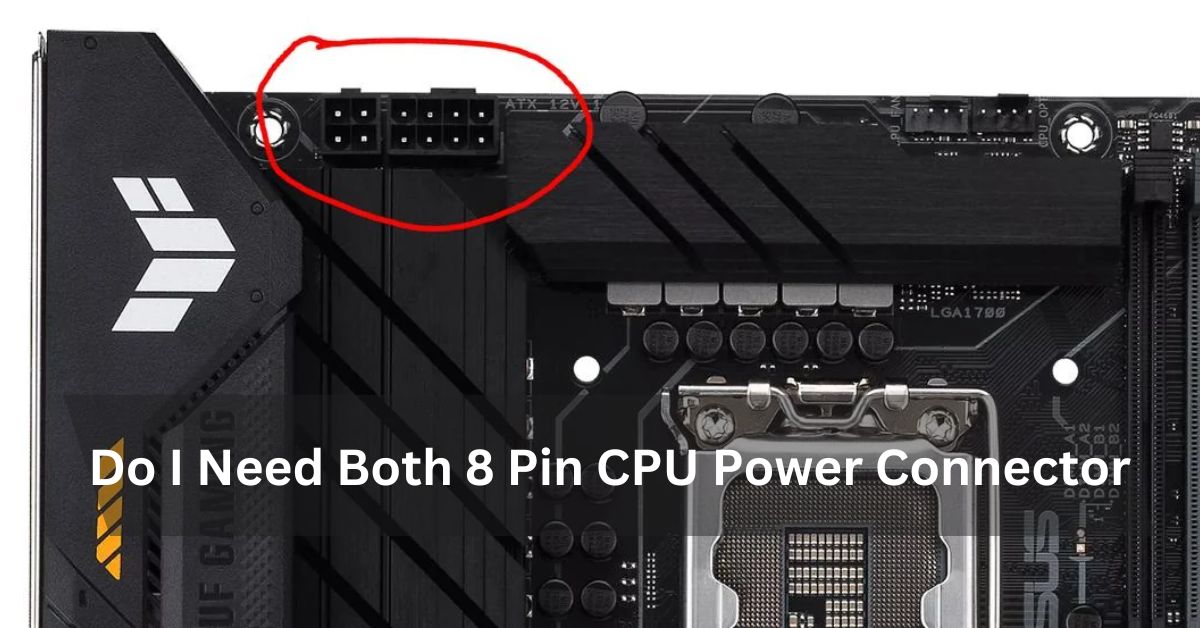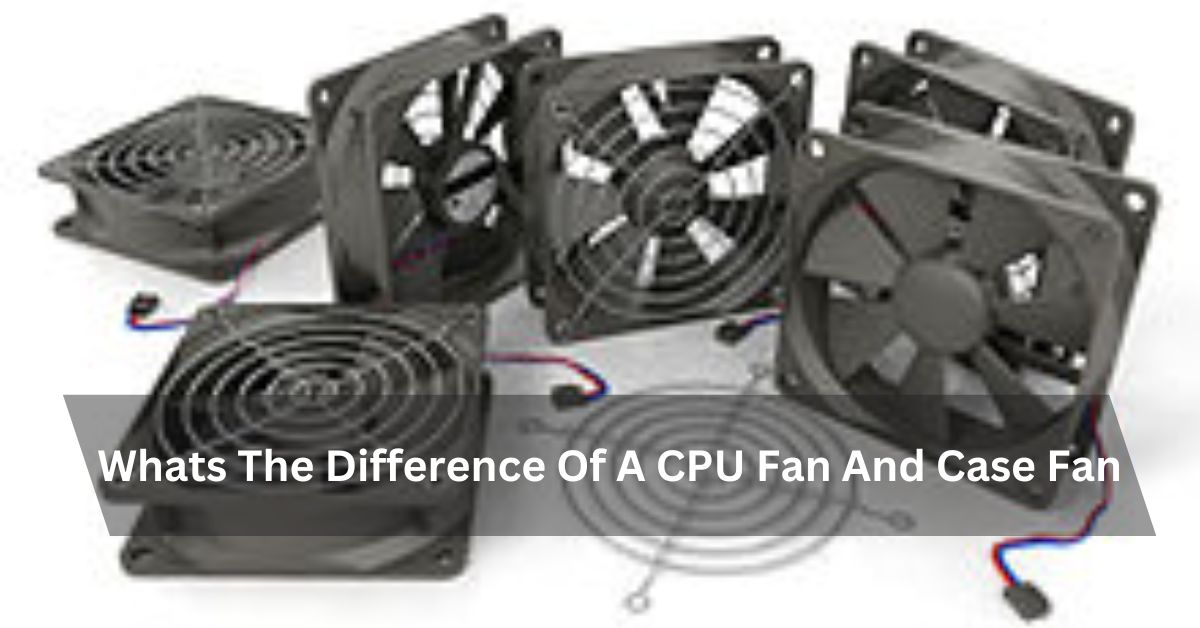Due to its effectiveness in dissolving thermal paste and sanitizing surfaces, isopropyl alcohol is adored by many enthusiasts when cleaning your CPU; however, about 70% isopropyl alcohol might be said. Is using it on your valuable processor safe?
Indeed, that ought to be okay. It’s more critical not to use a paper-to-paper towel to clean it since those can tear and leave little bits of paper buildup on the computer chip.
We should plunge into the subtleties and track them down. Isopropyl, or scouring alcohol, is a flexible dissolvable used for cleaning and sanitizing different surfaces.
Figuring out Isopropyl alcohol:
Isopropyl alcohol, generally known as scouring alcohol, is flexible and dissolvable with different applications, including cleaning electronic parts like central processors. Because it balances effectiveness and safety, a concentration of 70% is frequently recommended for cleaning.
While cleaning a computer processor with 70% isopropyl alcohol, it’s fundamental to apply it delicately utilizing a buildup-free material or q-tip to eliminate warm glue or different deposits.
However, extreme caution is required to avoid contaminating the CPU or impairing its performance. Before cleaning, always check the manufacturer’s instructions and make sure the CPU is off and cooled.
How Important It Is to Clean a CPU:
1. Worked on Warm Execution:
Residue, debris, and jetsam aggregation on the computer chip and its cooler can frustrate heat dissemination, prompting higher temperatures and decreased execution. Regular cleaning aids in maintaining optimal thermal conductivity, facilitating effective heat transfer away from the CPU.
2. Extra Longevity:
The CPU and its components can last longer if they are kept clean. Dust accumulation can accelerate component degradation and increase the risk of premature hardware failure by producing excessive heat. Cleaning reduces these dangers and ensures the CPU’s longevity.
3. To Avoid Overheating:
Overheating is typically caused by dust obstructing the computer chip cooler and air vents. Thermal throttling, in which the CPU slows down to prevent damage, may result from this. The risk of performance throttling and overheating is significantly reduced by cleaning to remove dust and debris.
4. Keeping up with Security and Dependability:
A spotless computer chip works dependably and steadily, contrasting to one troubled with residue and grime. Maintaining system performance requires this stability, particularly during demanding activities like gaming, video editing, and heavy multitasking.
5. Improved Execution:
Cleaning the CPU ensures optimal performance by maintaining consistent and effective heat dissipation. That is especially significant for overclocked frameworks or those utilized in requesting registering assignments, where keeping up with low temperatures is fundamental for accomplishing maximized execution.
6. Improved Tasteful Allure:
Besides execution benefits, it keeps the computer processor, and its more astonishing clean upgrades the general stylish allure of the framework. A perfect and very much kept-up-with computer chip arrangement ponders the client’s scrupulousness and obligation to legitimate framework care decidedly.
7. Reduced levels of noise:
CPU fans may have to work harder and make more noise to maintain cooling efficiency if dust buildup is a problem. Customary cleaning helps smooth the fanning activity and limits clamor levels, adding to a calmer processing experience.
8. Counteraction of Erosion:
Residue and dampness can add to the consumption of delicate electronic parts, including the computer chip and its contacts. Cleaning removes these corrosive substances, lowering the likelihood of damage and preserving the CPU and the hardware around it over time.
Also Read: CPU Temperature Changes Rapidly Only Under Load-Complete Guide
How to Use 70% Isopropyl Alcohol to Clean a CPU?
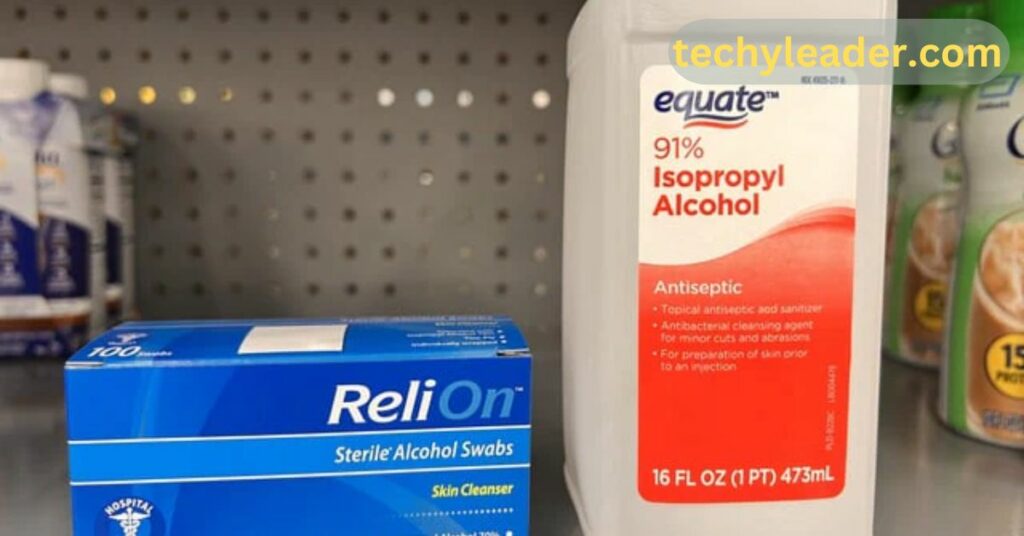
1. Get your workspace ready:
To begin, turn off your computer’s power and disconnect it from the power supply. Transfer to a location with ample workspace and good ventilation. A bottle of 70% isopropyl alcohol and a lint-free cloth or cotton swab are two of the necessary cleaning supplies.
2. Take the CPU Cooler Out:
Follow the manufacturer’s instructions when removing the fan or liquid cooler from the CPU socket on your computer. This typically includes slackening screws or delivering clasps to isolate the cooler from the central processor.
3. Make the CPU Cooler Clean:
Clean the CPU cooler and fan blades of any visible dust or debris with compressed air or a soft brush. Be gentle to avoid causing damage to the delicate parts.
4. Clean the computer processor:
70% isopropyl alcohol should dampen a cotton swab or cloth free of lint. Delicately wipe the outer layer of the computer chip to eliminate any warm glue buildup or impurities. Be careful not to put too much pressure on the CPU socket or allow liquid to seep in.
5. Remove the Stiff Residue:
Use isopropyl alcohol to lightly dampen a cotton swab and carefully swab the affected areas until the residue is removed for stubborn residue. To avoid damaging the CPU, don’t use too much force.
6. Leave to Dry:
In the wake of cleaning, permit the computer processor and cooler to air dry before reassembly. That usually only takes a few minutes, but before moving on, ensure all traces of isopropyl alcohol have evaporated.
7. Use thermal paste again:
Before reattaching the CPU cooler, apply a small amount of fresh thermal paste to the CPU’s center if you removed it. Make sure you use the product according to the manufacturer’s instructions.
8. Reassemble and Test:
Carefully ensure the CPU cooler is securely reattached to the CPU socket club in any power links and reconnect the PC to control. Power on the PC and screen the computer chip temperatures to guarantee appropriate cooling execution.
Also Read: Why Is My CPU Temp So High At Idle?-Complete Guide
Alternatives to Isopropyl Alcohol for CPU Cleaning:
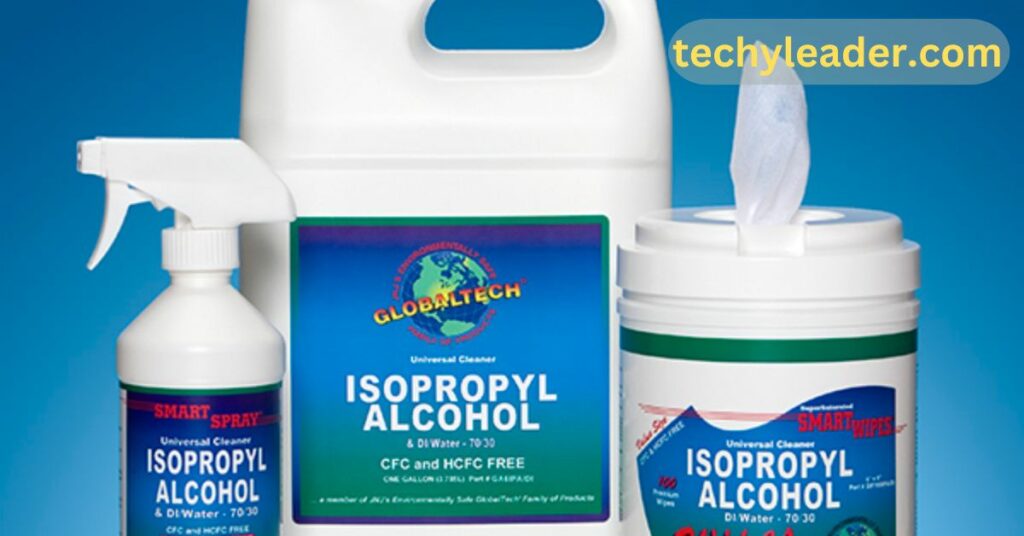
1. Denatured alcohol:
Denatured alcohol, otherwise called methylated spirits, is a reasonable option for isopropyl alcohol for cleaning central processors. It has comparable dissolvable properties and dissipates rapidly, abandoning insignificant buildup.
2. Electronic Contact More clean:
Explicitly intended for cleaning electronic parts, an electronic contact cleaner is a successful option for isopropyl alcohol. It comes in a spray structure with a spout for exact application and dissipates rapidly without abandoning any buildup.
3. White Vinegar:
White vinegar weakened with water can be used as a gentle cleaning answer to eliminate the warm glue buildup from computer processors. Blend a balance of white vinegar and water, hose a build-up-free fabric or Q-tip with the arrangement, and tenderly wipe the central processor surface.
4. Distilled Water:
A cotton swab or lint-free cloth can be used with distilled water to remove dust and debris from the CPU surface. It is imperative to use distilled water to prevent the introduction of minerals or contaminants that could damage electronic components.
5. Packed Air:
Compacted air is a magnificent option for eliminating residue and trash from computer chip heat sinks, fans, and different parts. Use a can of compressed air to eliminate the dust buildup. Hold the can upright, and don’t spray liquid fuel on the parts.
6. Build up Free Microfiber Material:
A build-up-free microfiber fabric can be used dry or marginally hosed with water to remove residue and fingerprints from the computer processor surface. Avoid using grating materials or unreasonable power to forestall scratching the computer chip. Baking
Aslo Read: How To Measure CPU Fan Size?-A Comprehensive Guide
FAQ’s:
1. Can electronic cleaning with 70% isopropyl alcohol be accomplished?
70% might do the trick if you clean the adhesive off something metal or plastic, but be careful not to spill it on wires or circuits.
2. Can isopropyl alcohol be used to clean my CPU?
When the processor is uncovered, utilize a limited quantity of isopropyl alcohol on a paper towel to eliminate the old, warm glue.
3. Can I clean CPU Reddit with 70 isopropyl alcohol?
Therefore, 70% is acceptable, and 71-99% is superior. Better is pure water.
Conclusion:
70% isopropyl alcohol is a protected and successful choice for cleaning your computer chip and other electronic parts. It is an excellent choice for amateurs and professionals due to its gentle nature and power to clean. Simply deal with it carefully, follow legitimate cleaning strategies, and partake in a spotless and productive computer chip for quite a long time into the future!
